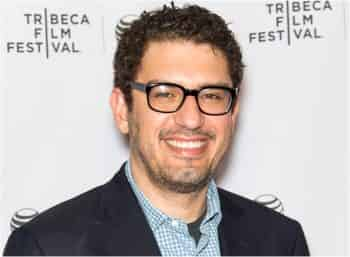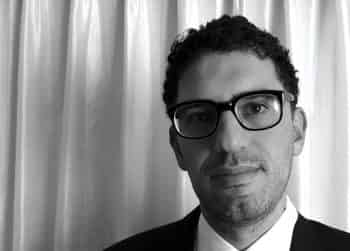
Sam Esmail
Comment écrire?
Ellroy, que nous admirons, est aussi fort en gueule, ce qui est une occasion d’avoir des perles, comme celle-ci : « It’s disingenuous when writers say that they have no control over their characters, that they have a life of their own. Here’s what happens: you create the characters rigorously, and make clear choices about their behavior. You reach junctures in your stories and are confronted with dramatic options. You choose one or the other. » (Nathaniel Rich. « Interviews: James Ellroy», The Art of Fiction No. 201).
Tout le monde n’a naturellement pas la même technique. Christopher McQuarrie expose la sienne: « We always start with an ending, so we always know where the story is going; knowing. However, never to stay married to it. I’ve stayed married to endings before and it’s been disastrous. You’ve got to let the story take its own course. » (« Christopher McQuarrie Gets Verbal on the Usual Suspects », cinetropolis.net, April 13, 2014).
À cet effet, nous reprenons un passage de l’entrevue accordée par Sam Esmail concernant l’élaboration du scenario de la seconde saison de Mr Robot :
« Interviewer: Can we talk about Angela a little bit? Her scenes were probably my favorite this season — you have that emotional karaoke scene, but you also have that episode where she’s doing the hack that set my heart racing. Had you always envisioned this type of role for her?
Sam Esmail: No, no. This is the great thing about TV is that when you discover certain strengths in an actor you can then begin to exploit them in really fun ways. I was shooting the season finale last year, the shoe store scene, and she says that line about the Prada. I’m watching this scene in the edit bay, and I don’t know, is she enjoying this or is she embarrassed, is she shameful about how she treated this poor guy or is she actually getting off on it? I actually thought, Portia has this weird, uncanny ability to be right there in the middle. She was the one that spoke to me and guided what the journey of her character was gonna be this season. » (Jen Chaney , Gazelle Emami and Matt Zoller Seitz. « Mr. Robot Creator Sam Esmail on How He Handles Criticism of the Show », www.vulture.com, September 28, 2016).
On pourrait bien sûr rétorquer qu’un comédien possède une palette de possibilités qui ne sont pas connues du scénariste lors de la phase de rédaction. Ce qui est en effet le cas. Cependant, lors du processus de création nous faisons de petits choix qui n’étaient pas prévus 10 pages plus tôt ou 10 aventure plus tôt. Ce sont ces petites altérations qui ouvrent un champ de possibilités nouvelles pour l’auteur, c’est là que réside la flexibilité qui peut sembler guider l’auteur.
Quoi écrire quand tout a déjà été dit?
Nous aimons lire sur des auteurs qui parlent de leur processus créatif. Nous sommes tombés sur une entrevue de Sam Esmail homme-orchestre derrière la série Mr Robot qui parle de sa motivation première lors de l’élaboration de ses scénarios : « And I was hamstrung in the first season because I was like, well, this is really only the first act, I need this thing to happen, I need this plot, whatever, the hack thing to happen. Because for me, plot is always an excuse to explore characters. ‘Cause who cares? The plot is the same plot that we see in basically every movie and TV show. But how we tell that story, what choices these characters could make … » (Jen Chaney , Gazelle Emami and Matt Zoller Seitz. « Mr. Robot Creator Sam Esmail on How He Handles Criticism of the Show », www.vulture.com, September 28, 2016).
Nous trouvons amusant de mettre en relation cette affirmation en lien avec les propos de Christopher McQuarrie qui a une longue carrière de scénaristes au cinéma et plus récemment de réalisateur. Il revenait dans une longue entrevue accordée sur le développement de son scénario Usual Suspect. Il mentionnait alors : « There’s a part of us that wants to see the bad guy get away, that wants to see this guy outsmart authority, and beat the system. That to me is when a movie is really good: when no one is an idiot. Early on in the development of the Suspects script someone asked me why Kujan was chasing this guy Keaton. What does he care? Did Keaton kill his partner? No, he’s just passionate about his job. You don’t have to be Vincent Van Gogh to be passionate about what you do[…] So many movies use revenge as motivation for characters. But I think that, unless you’re analyzing the mind-set itself, it’s a bad motivation. » (« Christopher McQuarrie Gets Verbal on the Usual Suspects », cinetropolis.net, April 13, 2014).
Bien que ces deux citations proviennent de contextes différents, elles sont, pour nous, complémentaires. L’exploration du personnage doit passer par une part d’ellipse, sinon la verbalisation des choix du personnage détruit toute spontanéité ainsi que les contradictions inhérentes aux comportements humains.






